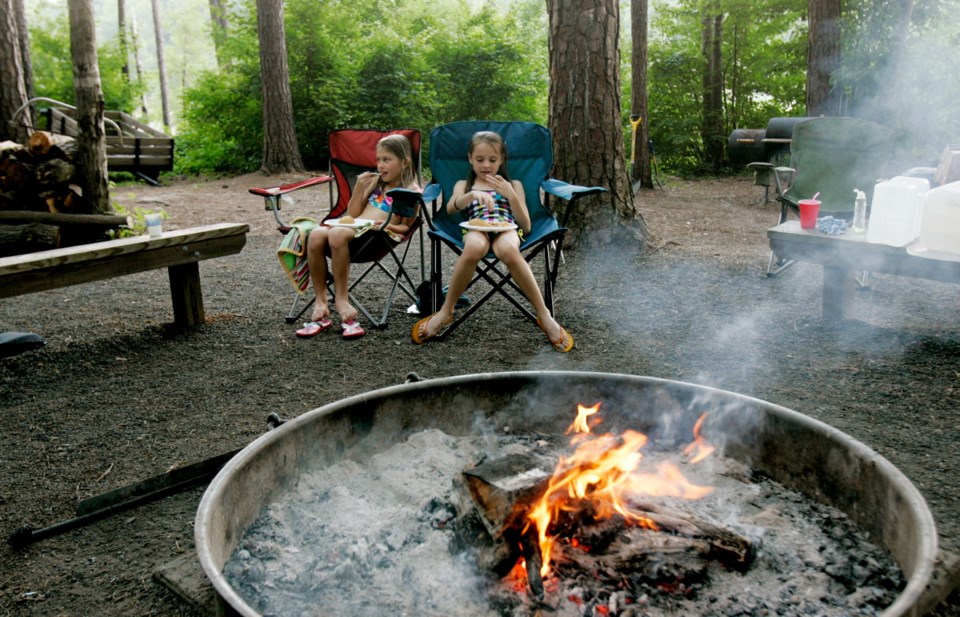A campfire ban for almost all of Vancouver Island will go into effect Wednesday due to dangerously dry conditions, the B.C. Wildfire Service said Monday.
The exception will be a two-kilometre band on the west side of the Island from Owen Point just north of Port Renfrew up to the outskirts of Port Hardy.
The campfire prohibition covers all B.C. parks, Crown and private lands within the coastal fire region, which includes the Island and part of the Lower Mainland.
“It’s hot, it’s dry and we haven’t had any substantial rain since Aug. 9,” fire information officer Marg Drysdale said. “And we are going to have hot, dry conditions continue at least until Friday and maybe through the weekend.”
No open burning is allowed in the city of Victoria, said Fire Chief Paul Bruce, adding the provincial ban strengthens the message that the hazard from open fires is extreme. “The issue, of course, is people that unfortunately ignore the ban and or the bylaw.”
Since spring, 139 fires have been recorded in the coastal fire region, compared with a 10-year average of 185 fires for the same period of time. The decrease is due to wet weather in June and July, Drysdale said.
A small, .03-hectare fire was being mopped up three kilometres southwest of Shawnigan Lake on Monday.
The wildfire service reported that lightning had sparked 14 fires recorded across B.C. on Sunday, with a total of 66 still burning.
There have been 820 fires in the province since the fire season began April 1, with most caused by lightning, said information officer Kevin Skrepnek.
The fire-danger rating for most of southern B.C. is listed as moderate, but southern Vancouver Island and the Gulf Islands have a high rating, along with sections of the Interior and northern B.C.



